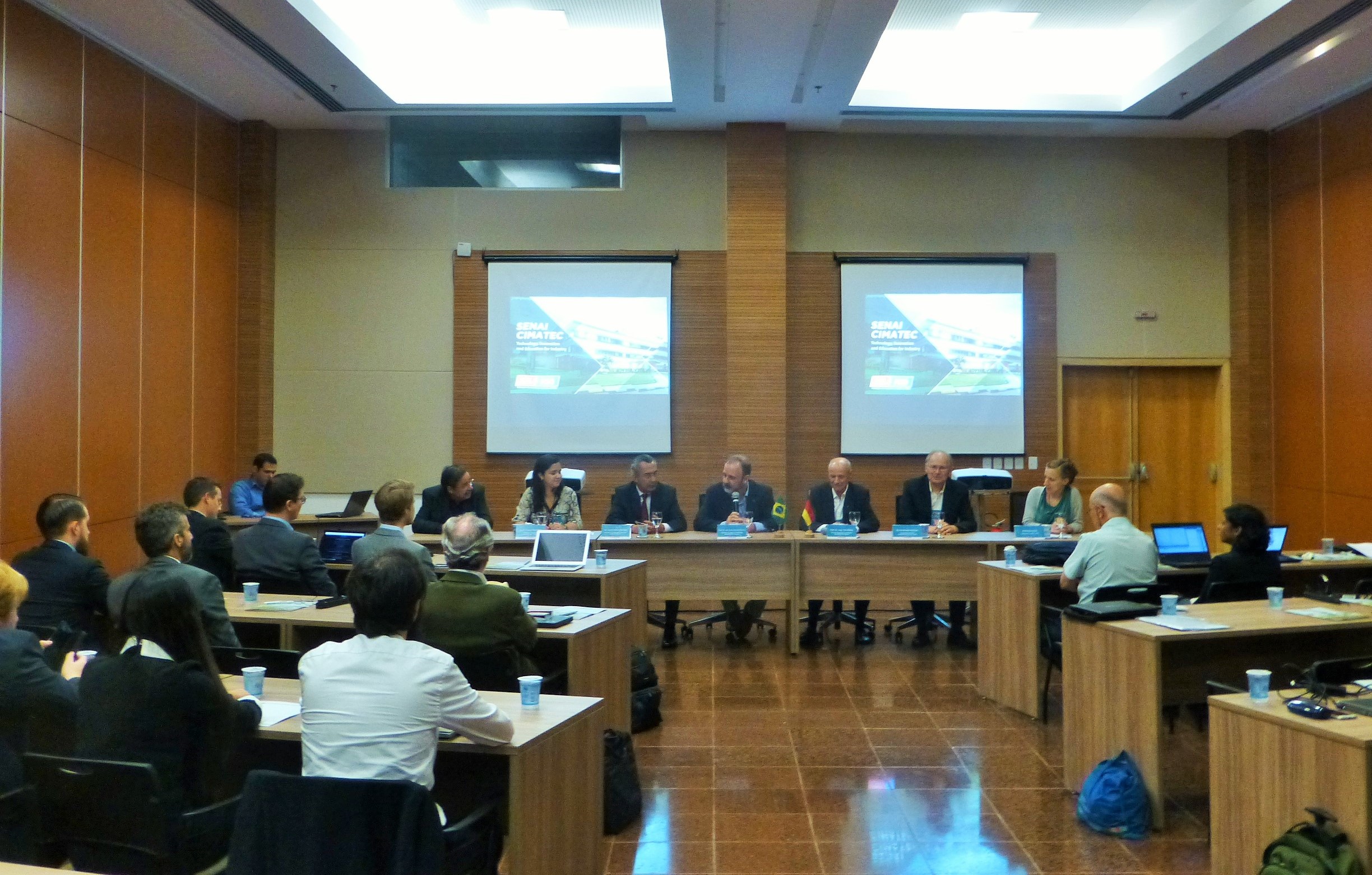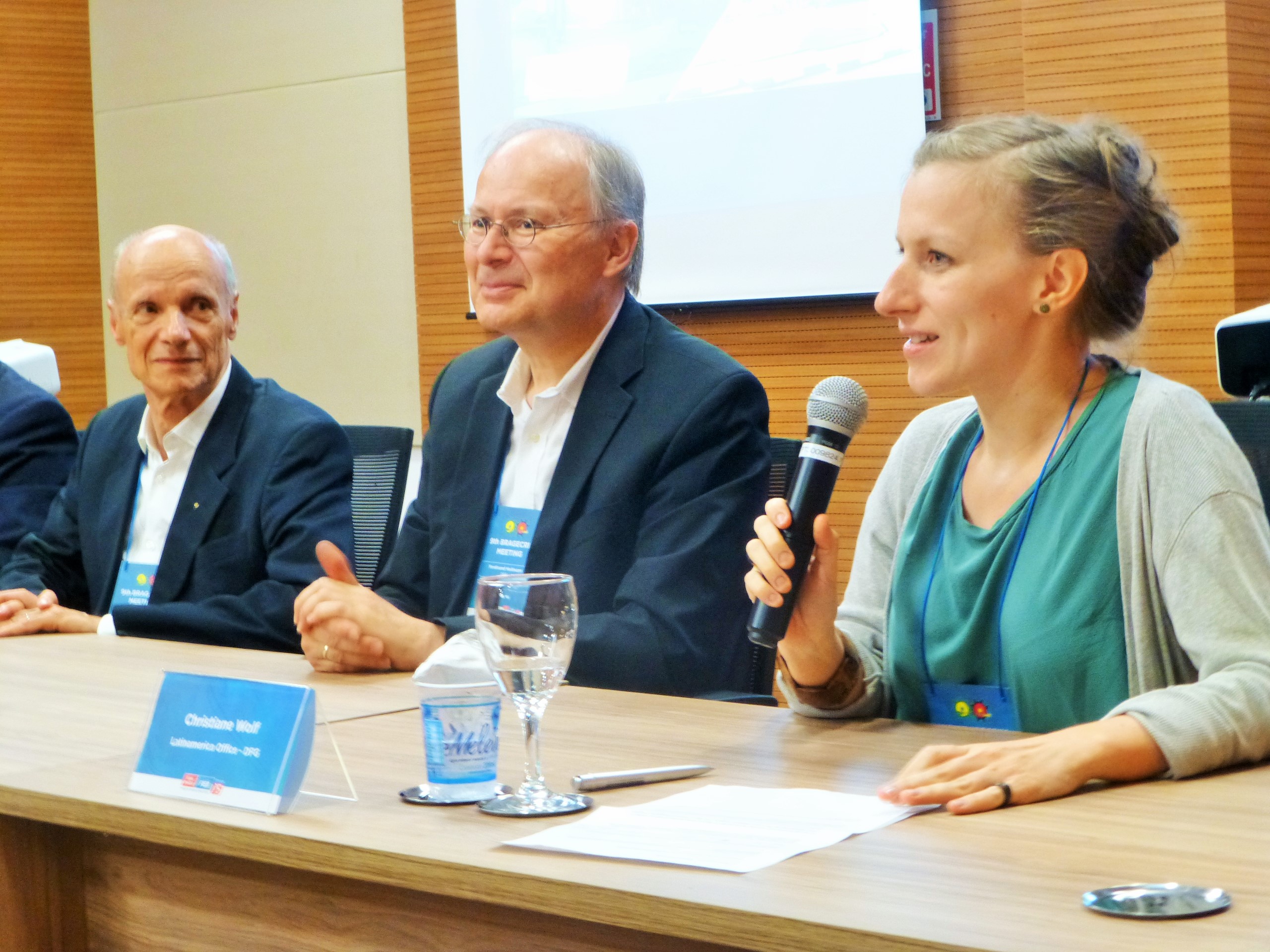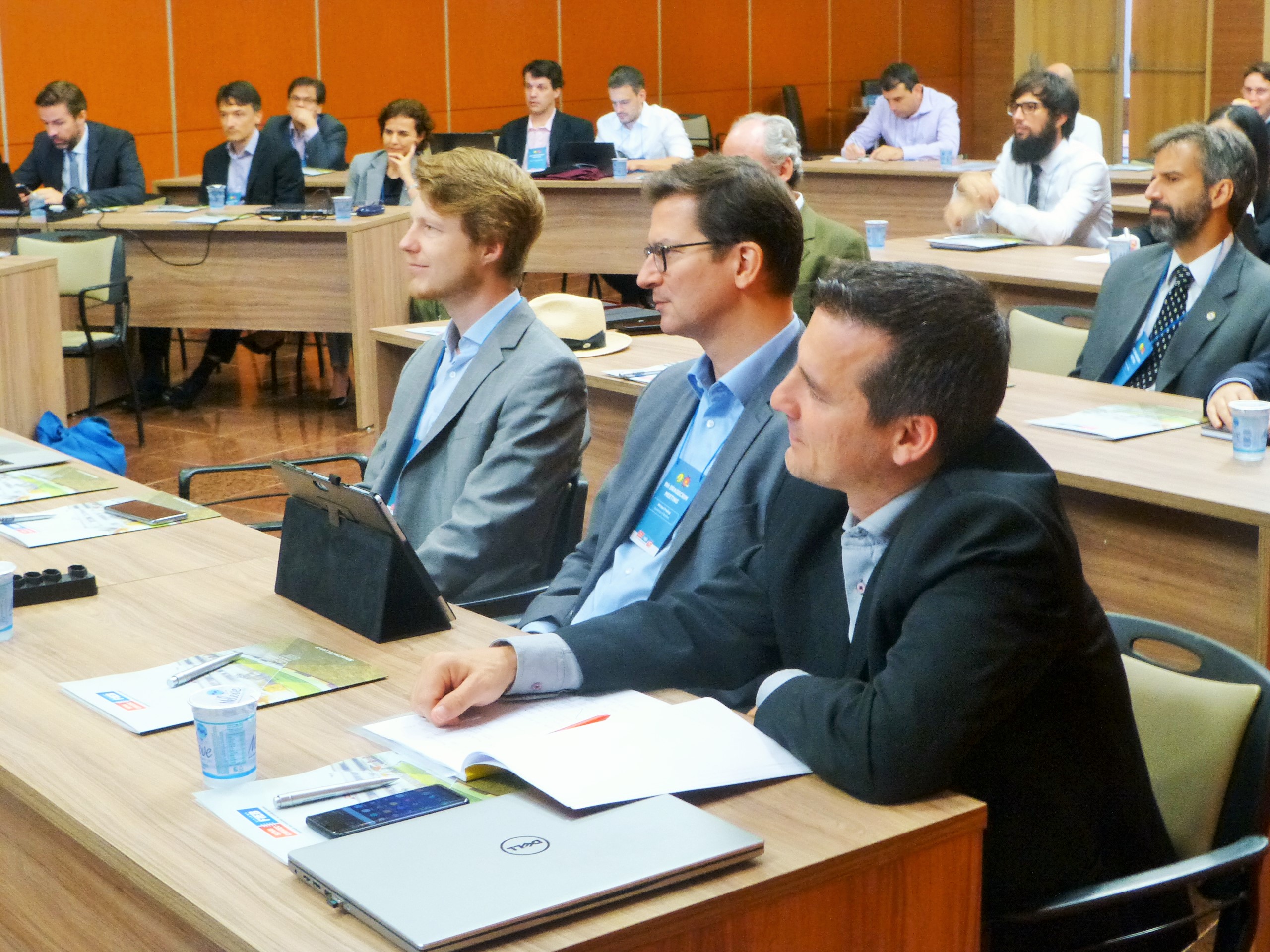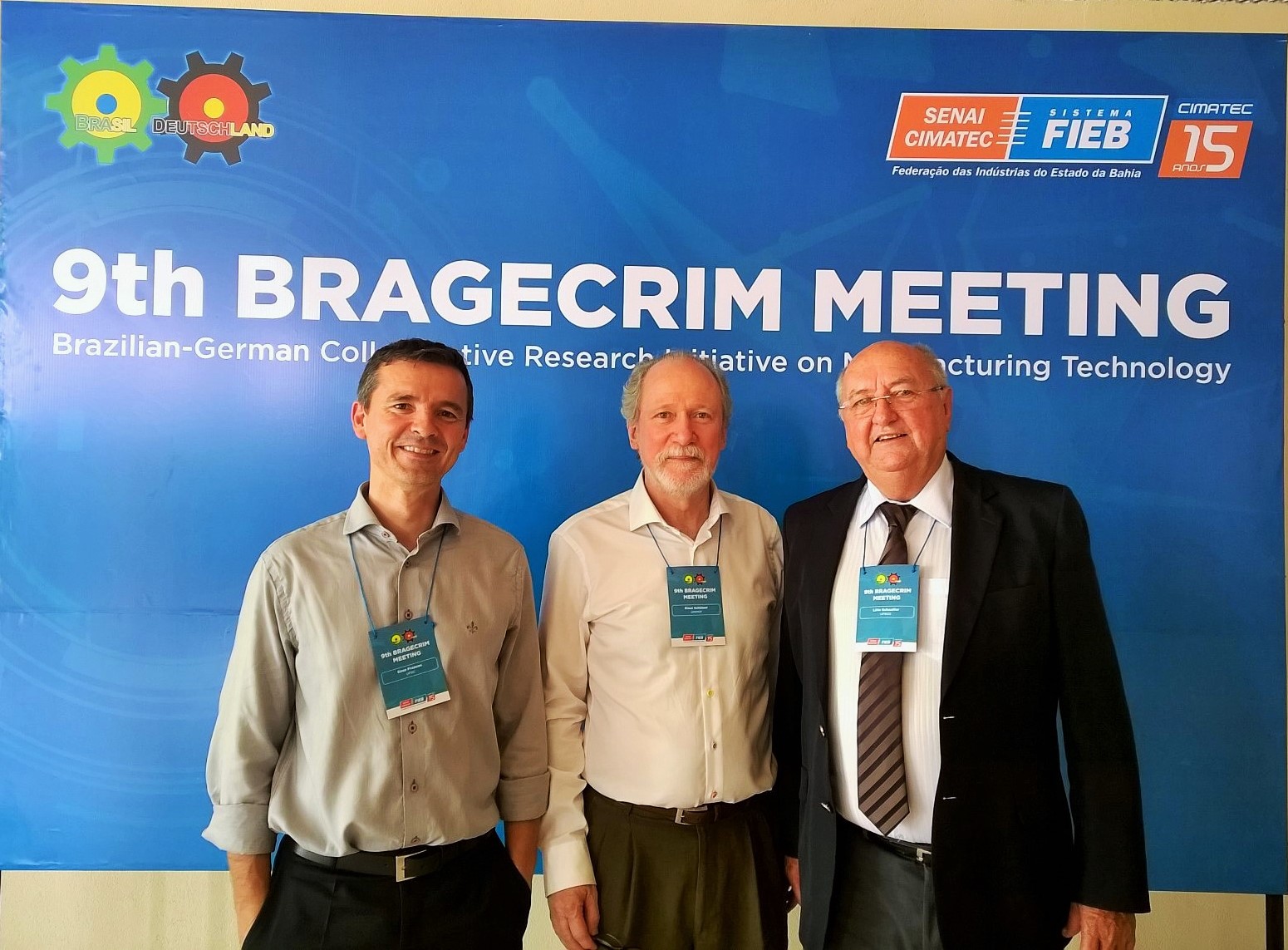The DFG at the Ninth Annual Meeting of BRAGECRIM
(16.11.17) The ninth annual meeting of BRAGECRIM (the Brazilian-German Collaborative Research Initiative in Manufacturing Technology) was held in Salvador from 8 to 10 November 2017. BRAGECRIM, which is financed by the DFG and its Brazilian partner organisation CAPES, is one of the largest bilateral research initiatives which, since the beginning of 2009, has brought together over 300 researchers from various universities and non-university research institutions in both countries.
The host institution for this year’s meeting in the capital of the federal state of Bahia was Senai Cimatec, a relatively new institution which has become one of the most renowned centres for engineering studies in the north and north-east regions of Brazil since its foundation just 15 years ago. A total of 35 German and Brazilian researchers gathered here, some of whom had helped to set up and support the network from the very beginning, and some of whom were PIs for projects that were newly included in the network as part of the last call in 2016.
Scientific presentations at the annual meeting
© DFG
After host Prof. Dr. Herman Lepikson (Senai Cimatec) and coordinators of the BRAGECRIM network, Professor Dr. Carlos Eduardo Pereira (UFRGS) and Professor Dr. Tilo Pfeifer (RWTH Aachen University), delivered their opening remarks, Clarissa Soares, CAPES Programme Director for Germany and Austria, Ferdinand Hollmann, DFG Programme Director for Engineering Sciences, and Christiane Wolf from the DFG Office in Latin America gave short welcome speeches. The attendees then introduced themselves, and many also expressed their thanks to the DFG and CAPES for the initiative’s almost 10 years of funding. Brazilian coordinator Carlos Eduardo Pereira reckoned that BRAGECRIM is an extremely important initiative for German-Brazilian cooperation in engineering sciences, and it has created a strong network of scientific contacts.
This was followed by presentations on current bilateral research projects showcasing the interdisciplinary nature of the BRAGECRIM network in a wide range of subdisciplines, including forming technology, digitisation in manufacturing, micromilling techniques, metal-cutting manufacturing technology and production measurement technology. All of these areas represent the various facets of the process chain in production engineering. Presentations were given on aspects of the projects, such as the composition of the German-Brazilian project teams, the arrangement of bilateral research into work packages, exchange initiatives between Germany and Brazil, existing industry cooperations and joint publications. After the talks, the other project teams asked questions about what the exchange between the projects promoted. This is one of the most important tasks of the annual meeting and a major aim of the BRAGECRIM initiative. Poster presentations and tours of Senai Cimatec’s facilities also enhanced the programme and offered opportunities for exchange and discussions.
The second day of the annual meeting began with a joint panel conceptualised by CAPES and the DFG. The first part saw Christiane Wolf lead a discussion with all attendees on the topic of “Experiences in working in a network of bilateral research projects”. The aim of the discussion was to receive feedback from the researchers on the work and organisation of the almost 10-year-old network, for example networking between individual projects and the role of network coordinators. A critical point was the imbalance between the exchange activities: more Brazilian students completed a stay in Germany than Germans in Brazil in almost all of the projects. The attendees thought efforts to persuade German Bachelor’s and Master’s students should be ramped up and more attractive funding packages for mobility were necessary.
In the second part of the panel, Clarissa Soares gave a presentation on the joint call by the DFG and CAPES, planned for the start of 2018, on “DFG-CAPES Collaborative Research Initiatives”. The aim of the call is to establish more networks in other disciplines based on the BRAGECRIM initiative model for production sciences. Soares also outlined the main features of the new internationalisation programme for Brazilian universities, which CAPES had launched that day.
Facts about BRAGECRIM
BRAGECRIM – the Brazilian-German Collaborative Research Initiative in Manufacturing Technology – is one of the largest German-Brazilian collaborative research initiatives. Over 300 researchers from numerous German and Brazilian universities and non-university research organisations have investigated key issues affecting all stages of the production cycle within its framework. Materials science, industrial engineering, metrology and logistics are incorporated into the German-Brazilian research programme.
Brazilian and German researchers submit funding proposals to CAPES or the DFG respectively, and the proposals are reviewed by both funding agencies together. The programme is currently in its third and final funding period and the researchers involved meet every year, alternating the location between Brazil and Germany, to exchange information on the current state of the projects. CAPES and the DFG are planning to take the model, which was developed in partnership with BRAGECRIM, and transform it into a network of organised individual projects as a funding format for other disciplines.
For more information on the group and funded projects, please visit:



